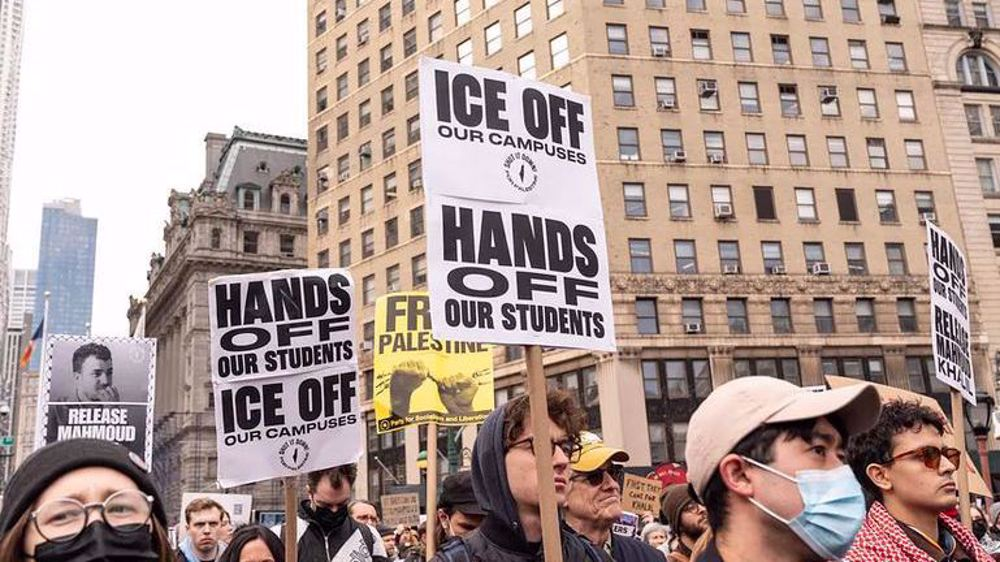The U.S. secretary of state has threatened people not aligning with the country’s staunch pro-Israeli support with visa revocations, using an incident involving a pro-Israeli march as an excuse.
Posting on X on Monday, Marco Rubio pointed to the Sunday incident in Boulder, Colorado, where a man who had reportedly overstayed his visa allegedly threw an incendiary device into the rally.
According to FBI, 8 protestors have been injured in Boulder City, Colorado in a pro-Israeli rally. “In light of yesterday’s horrific attack, all terrorists, their family members, and terrorist sympathizers here on a visa should know that under the [Donald] Trump Administration we will find you, revoke your visa, and deport you,” he wrote.
The official has made visa revocation for individuals he labels as “terrorist sympathizers,” a central part of his agenda since taking office in January.
He has been taking special aim at the people raging against the Israeli regime’s ongoing genocidal atrocities in the Gaza Strip and other instances of aggression, as well as, those whom American officials try to brand as, “China sympathizers.”
Observers note how the official’s rhetoric aligns with broader immigration policies being enforced by the incumbent administration.
The administration has taken increasingly aggressive measures against both student and visitor visa holders, especially those perceived as critical of US foreign policy or sympathetic towards Palestinians.
In a related announcement last week, Rubio also declared that the administration would begin “aggressively revoking visas for Chinese students,” particularly those, whom he said were, bearing ties to the Chinese Communist Party or studying in sensitive academic fields.
Actions have also targeted international students, particularly those hailing from Muslim-majority countries. Recent reports indicate that US Immigration and Customs Enforcement (ICE) has secretly revoked immigration statuses without notifying students or their universities.
The media outlet Zeteo revealed that many of the affected students had discovered their revoked statuses only during internal checks or after enforcement actions had already begun.


